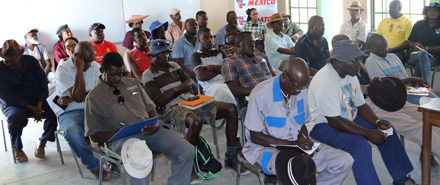
Temporary ban on maize and mahangu imports to protect local producers starts 01 June

The country will temporarily discontinue white maize imports starting 01 June until the local harvest has been taken up and partially milled, the Namibian Agronomic Board (NAB) announced last week as repoted by a local news agency.
NAB Chief Executive, Dr Fidelis Mwazi informed mahangu processors that their import permits will only be valid until 30 June.
Mahangu, commonly known as pearl millet, is an ancient crop indigenous to Africa. Unlike exotic maize and wheat, pearl millet is a hardy local grain able to grow in areas of low soil fertility and high temperature, in soils with high salinity and low pH.
“Due to good rainfall experienced in most of the production zones, a total of 3,000 tons is expected to be marketed to millers and silos during this upcoming marketing season,” Dr Mwazi said.
Mahangu is mainly produced in the northern regions of Zambezi, Kavango East and West, Ohangwena, Oshikoto, Oshana and Omusati.
According to recent estimates by the NAB, the projected local white maize demand for the next six months in Namibia stands at 70,000 metric tons while the expected harvest to be marketed to processors and silos by Namibian producers stands at 64,039 metric tons.
The projected local mahangu formal market demand for the next six months stands at 1,800 metric tonnes with Namibian producers expected to market 1,823 metric tonnes to processors.
The Agronomic Board said millers refusing to take up maize from local producers during the restricted import period will not be given import permits and producers are requested to report such cases to the NAB. (Xinhua)













































